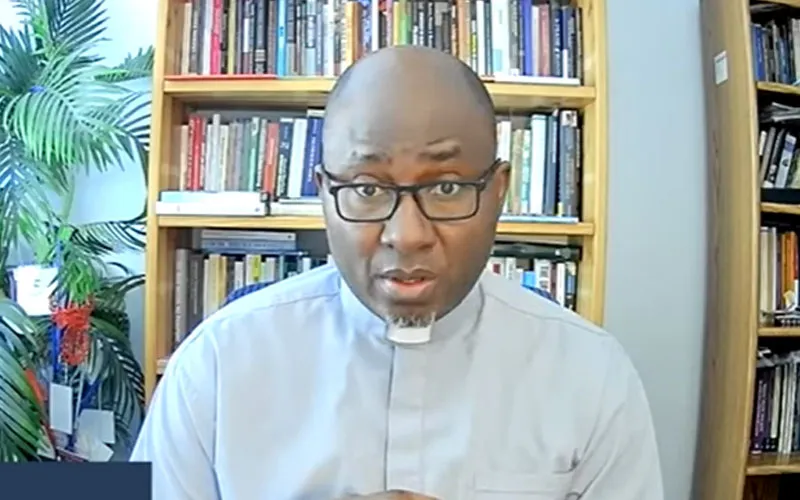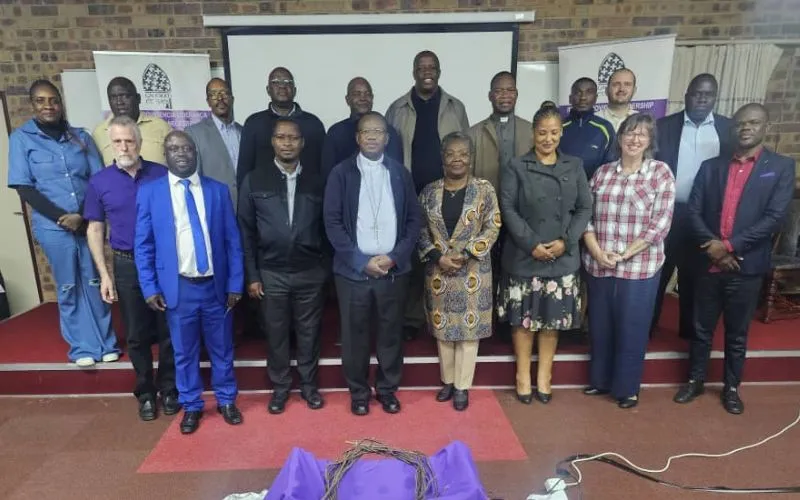It is these young men, the Catholic Priest says, that are easily conscripted in terrorist groups such as Boko Haram to wage war on Christians. Some, he says, are easily bought by politicians to carry out various atrocities in the country.
Some of the youth, Fr. Stan went on to says, spend so much time in bushes that it becomes difficult for them to act humanely. He said, "That is why it's so easy for them to carry out these barbaric acts. They have lost all humanity. The illiteracy levels among Muslim children are so high and they can't reason."
Islamization in Nigeria, Fr. Stan said, is characterized by "deeply rooted prejudice, bitterness and miseducation" that he said has "spilled into cultural and religious imagination of the people.”
In the interview with ACI Africa, Fr. Stan challenges Muslim leaders to solidify their work with their Christian counterparts, and in so doing, to delegitimize activists of Islamist groups in Nigeria.
On their part, Christian leaders in Nigeria are doing everything within their power to prevent a religious war in the country, Fr. Stan said during the February 17 interview.
(Story continues below)
The Catholic Priest notes that without the intervention of members of the Christian Association of Nigeria (CAN), Christians would have possibly retaliated by fighting back their attackers.
"Catholic Bishops and their counterparts at CAN have been very effective in preventing the retaliation of Christians when they are attacked. Without this, we'd probably be having a serious religious war in Nigeria," Fr. Stan said.
He lauded CAN for adopting a non-violence approach to the situation in Nigeria, saying, "Our leaders have insisted on not spilling the blood of the attackers. Some Christians are, of course, against this. They want to fight back. But our leaders have maintained their stance."
Asked whether Christian leaders in Nigeria have exhausted all means to protect the people who continue to suffer at the hands of Islamists, Fr. Stan said, “If anyone had a solution to this problem, we would have implemented a long time ago to stop the suffering of our people. There is no quick fix to this conflict that has been ongoing for over 150 years. But we can’t stop negotiation. Nothing can be enough until we have peace in Nigeria.”
He, however, acknowledged the biggest obstacle to Christian leaders working towards religious tolerance in Nigeria saying, “The conflict in Nigeria has multiple layers of complexity; and Christian leaders lack the power, leverage, and even reach to deal with the challenging complexity.”
“There exists an internal Islamic tension that’s outside the range of Christian leaders. And Christian leaders can only do so much. And they need the goodwill of all religious leaders, including all Muslims,” the Nigerian Professor elaborates.
Fr. Stan paints a picture of gloom in the country, posing, but just how long can Christian leaders endure when persecution of the people of God continues amid their efforts to create an atmosphere of religious tolerance?
“I have interacted with some Christian leaders who admit that they are getting tired. Killings and displacements continue unabated. Nigeria has become a vast graveyard. The situation keeps getting worse,” the Catholic Priest says.
He adds, “We need joint prayers, Muslims and Christians to restore the strength of our Christian leaders. We need to work together to end this conflict because we are brothers.”
Nigerian authorities also have a role to play in ending the persecution of Christians in the country, Fr. Stan told ACI Africa, and explained, “No amount of footwork without the goodwill of the government can help.”
He further urged religious leaders in Nigeria to be “more than ever before”, politically engaged and to participate strongly in the country’s policy formulation.
“I think it is heretical to tell the religious leaders not to be involved in the politics of Nigeria. Our religious leaders need to come out strongly to talk about issues of governance in the country, and to speak to those in power,” Fr. Stan said.
Agnes Aineah is a Kenyan journalist with a background in digital and newspaper reporting. She holds a Master of Arts in Digital Journalism from the Aga Khan University, Graduate School of Media and Communications and a Bachelor's Degree in Linguistics, Media and Communications from Kenya's Moi University. Agnes currently serves as a journalist for ACI Africa.








